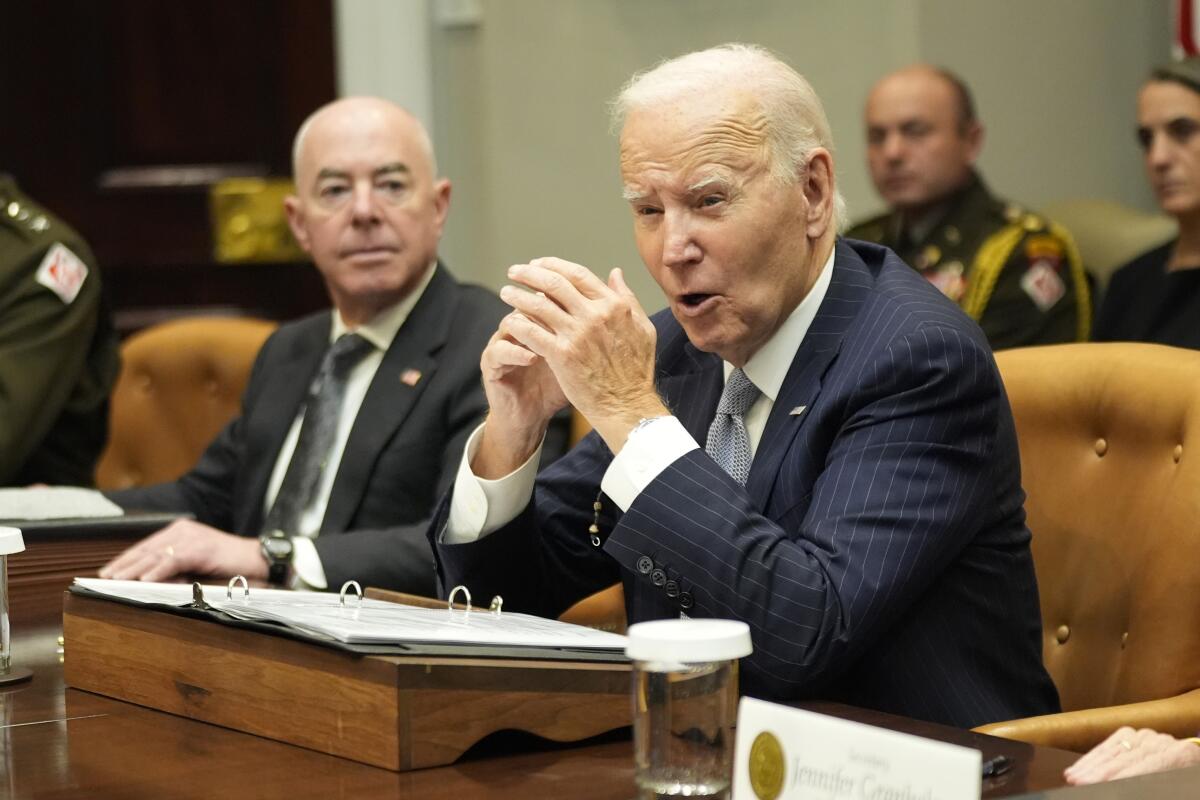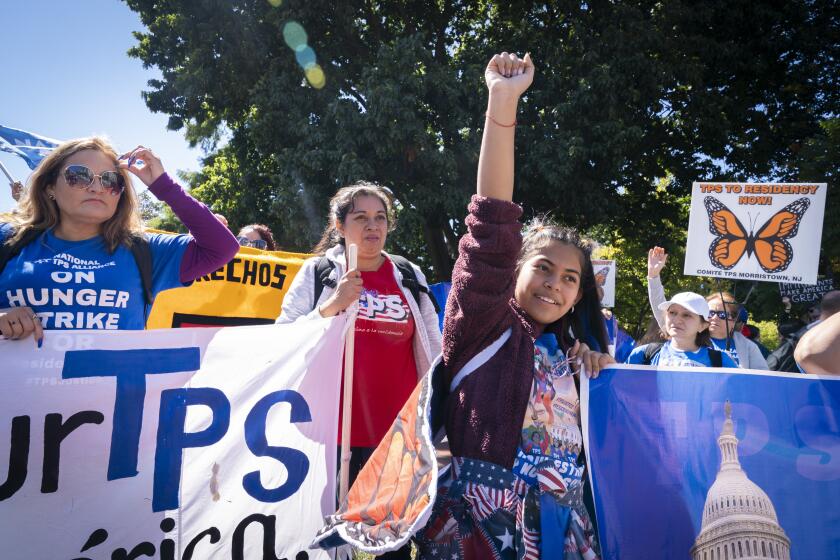Homeland Security grants temporary legal status to Lebanese already in the United States

- Share via
WASHINGTON — The Biden administration on Thursday announced temporary legal status for Lebanese citizens already in the United States, likely pleasing some Arab voters, including in the battleground state of Michigan.
The announcement, together with an earlier offer in July, brings the number of Lebanese who will be able to stay in the country and become eligible for work authorization to about 11,000, according to the Homeland Security Department. The offer is for people already in the U.S. on Wednesday, and it is for a period of 18 months.
Temporary Protected Status will allow Lebanese citizens to stay “while the United States is in discussions to achieve a diplomatic solution for lasting stability and security across the Israel-Lebanon border,” Homeland Security said in a statement. They must have been in the United States on Wednesday.
Vice President Kamala Harris and former President Trump have been forced to deal with conflict in Lebanon and across the Mideast in the final weeks of their White House campaign.
The Biden administration says it will extend legal status by 18 months for more than 300,000 people from El Salvador, Honduras, Nicaragua and Nepal.
Israeli forces and Hezbollah fighters have been clashing since Oct. 8, 2023, when the Lebanese militant group began firing rockets over the border in support of its ally Hamas in Gaza.
In recent weeks, Israel has conducted a major aerial bombardment of Lebanon and a ground invasion that it says aims to push Hezbollah back from the border and allow displaced residents of northern Israel to return.
Assad I. Turfe, deputy executive of Wayne County, Mich., said TPS “will provide critical support to Lebanese nationals, helping to reunite families here in America and offering relief from the challenges caused by the conflict.”
Nearly 900,000 people were covered by TPS at the end of March, according to the Congressional Research Service. The 1990 law provides legal status to people already in the United States from countries hit by natural disasters or civil strife.
In addition, some Palestinians, Lebanese, Liberians and residents of Hong Kong living in the United States are covered by a similar program, called Deferred Enforcement Departure, which is run under the authority of the president instead of the Homeland Security Department.
More to Read
Sign up for Essential California
The most important California stories and recommendations in your inbox every morning.
You may occasionally receive promotional content from the Los Angeles Times.











